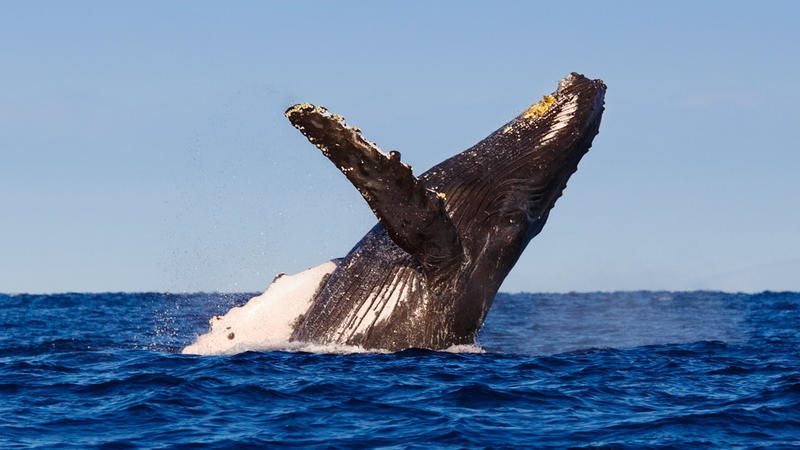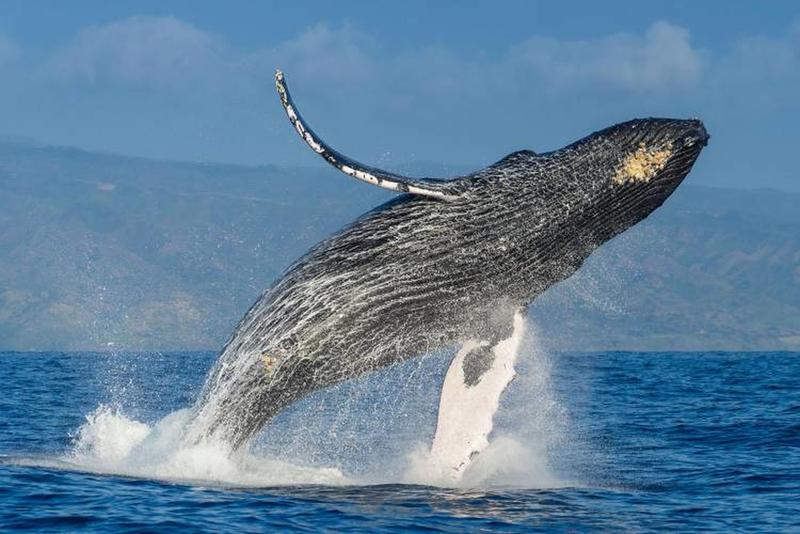If you've been lucky enough to see a whale breach the water right in front of you, you know exactly how majestic these creatures can be. They've been on this Earth for a long time, and even though they don't appear to be anything like humans, we share so much with them.
Despite our shared mammalian ancestry, our actions don't always treat whales as equals. There are many man-made concerns that threaten the quality of life for ocean animals, including pollution which already threatens many species including our own. That doesn't' even factor in things like whale hunting which poses a direct threat to their lives.
Now there is a new threat to the whales, but it isn't exactly their health that is in danger. It is their songs that we are seeing go extinct, so to speak. Read on to find out how our actions are affecting the whale community to the point where their beautiful songs are even affected.

When it comes to whales, it's the male of the species who sings these beautiful songs that you may have heard on a wildlife TV program or a marine exhibit. The kind of whales who use singing, Baleen whales, sing so that they can communicate, navigate the vast oceans, find a partner, and look for food. Needless to say, it is incredibly important to them. Unfortunately something is happening that is stopping their singing for short to extended periods of time: shipping boats.

Human activity is the cause for this disruption in nature, which isn't anything new, but it still very startling. The information was discovered in the journal PLOS ONE by Japanese researches, which posits that human activity in the oceans is getting louder and louder, thus it is getting more and more disruptive.
It isn't just one type of man-made issue that is causing this underwater disturbance for the whales. There are multiple factors that all boil down to one cause: humans. Some of those issues include seismic blasting for gas and oil, military sonar, underwater construction, and shipping boats. It's not as if this information is entirely new either. These disturbances have been negatively affecting other sea life for years as well.

The study was conducted by researchers at Ogasawara Whale Watching Association and Hokkaido University in Japan. They used underwater sound recorder to evaluate the effects of passing ships on humpback whale songs. Rosalind Rolland, a veterinarian and whale expert, helped explain, "It's very difficult to find anywhere in the ocean where there is just a single source of ocean noise. Most times there is noise from all directions."
The results were just as you might expect. Whales tended to sing far less while within 500 meters of shipping lanes. This is compared to areas where a ship passed that was not a main shipping lane. The whales would then wait at least 30 minutes to sing again. The paper goes on to say, "Humpback whales seemed to stop singing temporarily rather than modifying sound characteristics of their song under the noise, generated by a passenger-cargo liner. Ceasing vocalization and moving away could be cost-effective adaptations to the fast-moving noise source."

While singing doesn't seem like it should be a big deal to us, for whales it could have devastating effects since they rely so heavily on their singing. It could keep them from finding mating partners, and it could chase them away from their habitats.